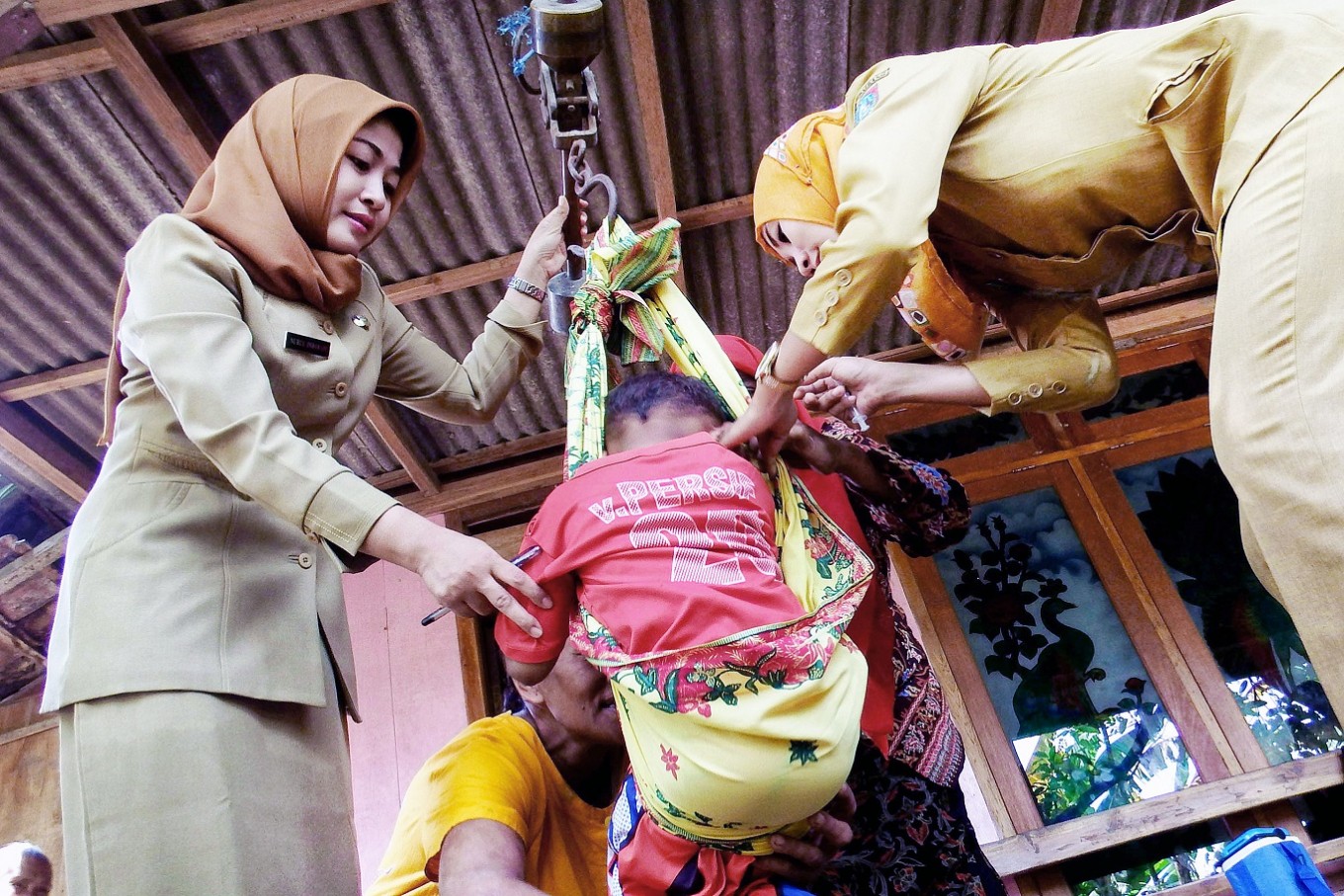Popular Reads
Top Results
Can't find what you're looking for?
View all search resultsPopular Reads
Top Results
Can't find what you're looking for?
View all search resultsIndonesia aims to bring obesity rate below 3 percent by 2030
The Health Ministry recorded a rise in the obesity rate as a proportion of the population from 2013 to 2018, Deputy Health Minister Dante Saksono Harbuwono said on Monday.
Change text size
Gift Premium Articles
to Anyone
T
he government is ramping up its efforts to bring the rising obesity rate below 3 percent by 2030 by focusing on improving public health education and monitoring processed foods.
The Health Ministry recorded a rise in the obesity rate as a proportion of the population from 2013 to 2018, Deputy Health Minister Dante Saksono Harbuwono said on Monday.
The ministry’s 2013 Basic Health Survey (Riskesdas) found that the country’s overall obesity prevalence was 15.3 percent. The figure jumped to 21.8 percent in the 2018 survey.
No more recent data was immediately available, but Dante estimated that the rate likely stood around 21 percent this year. The ministry wants to bring that figure down to 3 percent by 2030, meaning it must come down some 3 to 4 percentage points annually.
“That will be a big ask,” Dante said at Forum Merdeka Barat 9, a government-sponsored media gathering.
Read also: Obesity continues to haunt Indonesia despite campaign
To reach the 2030 target, the government is focusing public awareness campaigns in schools and health centers to educate families about good nutrition, especially for children. The campaigns seek not only to help lower the diabetes and obesity rates but also limit stunting, another long-standing health issue in the country.
Stunting is the result of chronic malnutrition in young children, affecting their height and long-term health. Some 21 percent of children under 5 years old in Indonesia are stunted as of late last year, according to the government.
"We realize we are experiencing a double burden of malnutrition. On one hand, we have a problem of malnutrition stunting. On the other hand, we have the [high] obesity rate,” Dante said.
“We need to correct both issues, so that stunting and obesity rates fall at the same time,” the deputy minister added.
The ministry’s existing public health programs include Isi Piringku (what’s on my plate), a practical guide to the composition and portioning of meals according to general daily nutritional requirements. Community health centers (Puskesmas) are on the front lines of the campaign, educating people on what a healthy diet for them and their children should consist of.
Dante said the ministry was also considering putting an excise tax on processed foods with high levels of sugar, fat or salt.
The long-planned excise tax on sweetened beverages hit a roadblock earlier this year, despite of an agreement between the Finance Ministry and the House of Representatives to include taxes on sweet drinks and plastic products in the 2023 state budget. But the ministry’s customs and excise directorate general argued that more time was required to iron out the legal requirements and implementation of the sugary beverage tax.
Read also: Indonesia’s health reform faces tough year
The Food and Drug Monitoring Agency (BPOM) has claimed the responsibility to lower the obesity rate also lies with regional administrations, which it says need to pick up slack in monitoring the nutrition of food products.
The agency monitors packaged foods and requires producers to put the nutritional content on the packaging. But the authority to monitor foods and snacks produced by small businesses and street vendors falls on local authorities.
“The BPOM can’t always be there to check all foods sold to children,” said BPOM deputy for processed food supervision Rita Endang. “It would be better if regional administrations took a firmer stance on similar policies so that programs to fight obesity can run well.”
A study published last year in BMJ Global Health found that increasing obesity was set to cost the world 3.3 percent of the global GDP by 2060, AFP reported. The health issue is expected to slow development in lower-income countries, making it even harder for people living there to lead healthy lives.
The Health Ministry is planning to launch a National Health Survey (SKI) in August, sampling some 586,000 households across the country to get a clearer picture of obesity prevalence and other health issues in the country. The results, expected in November, will help inform authorities draft health targets and policies for the 2025-2029 National Medium-Term Development Plan (RPJMN).










